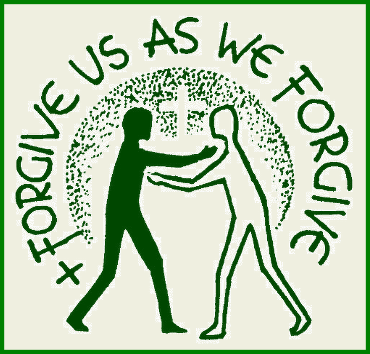Readings: Ecclesiasticus 27:33 – 28:7; Romans 14:7-9; Matthew 18:21-35
Theme: To Forgive Is To Set A Prisoner Free And Discover That The Prisoner Was You (Lewis B Smedes)
Forgiveness is the most striking manifestation of God’s love. The God of Jesus Christ is, above all, a God who forgives. This was shown supremely in Jesus’ death on the Cross, when he prayed to his Father to forgive those who were crucifying him. This was indeed an extraordinary act of forgiveness, the climax of a life and ministry in which Jesus constantly proclaimed and witnessed to God’s forgiving love. As the American poet, Robert Frost, memorably reminded us in his poem, A Masque of Mercy,
‘Christ came to introduce a break with logic
That made all other outrage seem as child’s play:
The Mercy on the Sin against the Sermon.
Strange no one ever thought of it before Him.
‘Twas lovely and its origin was love.’
Our scripture readings today challenge us to imitate the mercy and forgiveness of Jesus. Our first reading from the Book of Ecclesiasticus reminds us that we have no right to ask the Lord to forgive us unless we are ready to forgive those who offend us: ‘Forgive your neighbours when they wrong you, and then your sins will be pardoned when you pray. If we nurse anger against others, can we then demand compassion from the Lord?’ (Eccles 28: 2-3).
In our gospel reading we see Jesus insisting so strongly on the need to forgive those who wrong us that Peter gets annoyed with him and asks him, sarcastically: ‘How often must I forgive my brother if he wrongs me. As often as seven times? And Jesus answers: ‘Not seven, I tell you, but seventy times seven’ (Mt 18:21). What Jesus is saying is that there should be no limit to how often we forgive those who do us wrong. We must imitate the forgiving attitude of our heavenly Father in our relations with one another. St Paul is merely repeating what Jesus says when he writes to the Colossians: ‘Bear with one another; forgive each other as soon as a quarrel begins. The Lord has forgiven you; now you must do the same’ (Col 3:13).
Forgiveness, however, does not come easy to us because we are not like our compassionate and loving Father, ‘slow to anger and rich in mercy’ (Ps 102:8). Even in small things we find it difficult to forgive. We can bear grudges for years against those we consider to have wronged us, to have let us down, or to have treated us unfairly. This can apply to family members, neighbours, friends and colleagues at work or in school. We often nurture bad feelings towards them. We avoid people with whom we have clashed or argued. We forget – or overlook the fact – that God continues to forgive us over and over again.
Why does Jesus insist so much on forgiveness? It is because without forgiveness love cannot flourish and peace cannot exist between people. When we refuse to forgive what happens? We simply close the doors of our hearts to love. Nursing anger and resentment is the best way to keep love out. The elder brother in the parable of the Prodigal Son is a striking example of this. He is someone cannot forgive because he has closed his heart to his younger brother and even to his Father. He never knew how much the father loved him too.
Pope John Paul II, in one of his New Year messages, stated that peace must be based on that form of love which is forgiveness. He goes on to underline the important point that this forgiveness is not a feeling but rather ‘a personal choice, a decision of the heart to go against the natural instinct to pay back evil with evil.’ The popular move, Philomena, which I watched for a second time recently, offers us a striking example of what forgiveness really is. The movie tells the story an elderly Irish woman’s search for her son, Anthony. She had become pregnant as a teenager, was sent to a convent to have her child, and later forced to give him up for adoption to an American couple. Yet she never stopped thinking about him and loving him.
With the help of a journalist, Martin Sixsmith, Philomena discovers that, following a distinguished career in politics, Anthony had died of AIDS. She also discovers that, before his death, he had travelled to Ireland in search of his Irish roots. However, the Sisters who negotiated the adoption had kept her in the dark about Anthony’s search for her. The highpoint of the movie comes when, along with Martin, Philomena meets the sister – now in a wheelchair – mainly responsible for frustrating her efforts to find her son, and tells her, ‘I forgive you’. In truth, she had made the decision to forgive long before she spoke those words, and, because of that decision, she was blessedly free from bitterness and resentment.
It is in forgiving that we are most like God, our Father, and Christ, his Son. It is in forgiving that we bring healing to ourselves and to others, that we restore broken relationships and release the seeds of love in our communities. It is in forgiving that we extend the reign of God’s love on earth. May the celebration of this Eucharist help us to become more forgiving persons.
Michael McCabe SMA
To listen to an alternative Homily for this Sunday, from Fr Tom Casey of the SMA Media Centre, Ndola, Zambia please click on the play button below.
|
|

